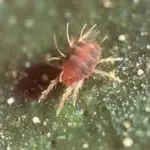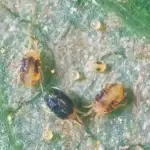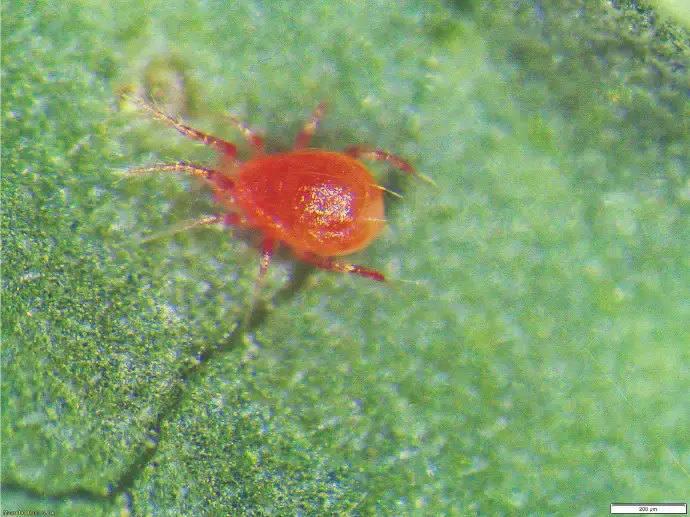Persimilis
Overview
Phytoseiulus persimilis (Persimilis) is a predatory mite used to control Two-Spotted Mite or Red Spider Mite (Tetranychus urticae), and Bean Red Spider Mite (Tetranychus ludeni).
Adult Persimilis will feed on all stages of spider mite, including the eggs.
Persimilis can be used on a broad range of crops including strawberries, berry fruit, capsicums, cucumbers, eggplants, tomatoes, hops, cannabis, cut flowers (gerbera, rose, cymbidium orchids), grapevines, some tree crops and many ornamentals.
Persimilis is effective in both protected and outdoor crops and most suited to moderate temperatures with good humidity levels. It is tolerant to some insecticides and most fungicides.
Pests Persimilis can help you control
You can use Persimilis to control Two-Spotted Mite and Bean Red Spider Mite in a range of greenhouse crops, flowers and ornamentals, grapevines and tree crops.
How Persimilis controls pests among crops
Adult Persimilis move through the plant foliage and attack spider mites at every stage of development from eggs to adult. The number of prey they consume depends on the predator and prey populations, the age of the predator, and the temperature and relative humidity.
Persimilis establish best when temperatures are 15-30°C and relative humidity is above 60%. In hot dry conditions, the predatory mites Typhlodromus occidentalis or Neoseiulus californicus may be better suited to controlling spider mites.
Persimilis is almost entirely dependent on spider mites as food. Once their prey is depleted, predatory mite populations will decline in numbers. Plant density is important when introducing them as they will disperse through your plant more quickly if the plants are touching.
Certain pesticides and fungicides affect this product so contact your local Biological Services Consultant for specific advice.
How you can order Persimilis
You can order Persimilis from Biological Services as loose material in 500ml bottles at 5,000 or 10,000 mites/bottle.
Get tailored advice for your commercial crop
To speak with one of our qualified consultants about your current commercial crop challenge or to learn about the benefits of the IPM maintenance and monitoring services we provide, contact us.



















